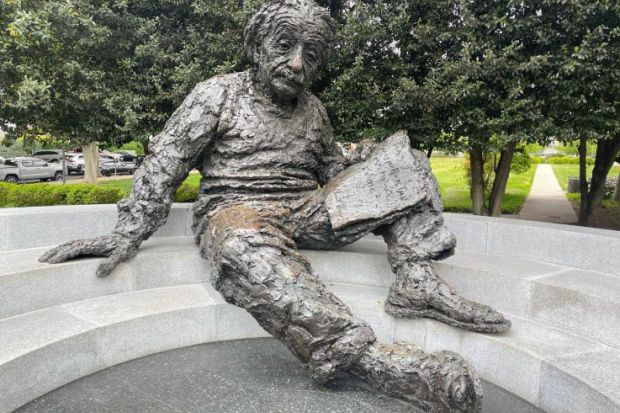The Albert Einstein College of Medicine has been given $1 billion (£800 million) by a former professor – the biggest gift to any US medical school – to make the institution perpetually tuition fee-free.
The donor, Ruth Gottesman, the chair of Einstein’s board of trustees, provided the money from stock left by her late husband, David Gottesman, from his investments in Berkshire Hathaway, the conglomerate of insurance, banking, oil and soft drinks.
Einstein has about 1,200 students at its campus in the financially impoverished Bronx borough of New York City, and they were called together for a morning assembly where Professor Gottesman brought them to cheers and tears with her announcement.
It joins a small group of institutions, including medical schools, that have been able to do something similar with large donations, including the medical school at New York University.
While US doctors are known for high salaries that allow them to repay large debts, the cost of medical school has widely been seen as limiting the ability and willingness of graduates to serve the neediest patients and fields.
At Einstein, fees are nearly $60,000 a year, and most of its students leave with more than $200,000 in debt.
The free tuition policy enabled by Professor Gottesman will begin this August. It will also provide the reimbursement of spring 2024 semester tuition for all current fourth-year students.
Professor Gottesman began working at Einstein’s Children’s Evaluation and Rehabilitation Center in 1968, and helped develop systems to identify and assist children with learning difficulties.
At age 93, she is now a clinical professor emerita of paediatrics at Einstein. Mr Gottesman died in 2022 and urged her to find a worthy use of the Berkshire Hathaway money.
Slightly fewer than half of Einstein’s medical students are white, about three-fifths are women and nearly 30 per cent are Asian. About 5 per cent are black, compared with nearly 45 per cent of the overall population of the Bronx, and both Professor Gottesman and Einstein officials said they hoped the gift would help the student body become more diverse.
It’s too early to outline exact goals for that, an Einstein spokesperson said. “But I think the hope is that it will enable generations of healthcare leaders who will advance the boundaries of research and care, free from the burden of crushing loan indebtedness,” the spokesperson said.
A number of top-ranked US universities cover tuition for their undergraduate students from families below certain levels of family income. Vanderbilt University recently announced it would join Columbia University at a relatively generous cut-off of $150,000 a year in family income.
Register to continue
Why register?
- Registration is free and only takes a moment
- Once registered, you can read 3 articles a month
- Sign up for our newsletter
Subscribe
Or subscribe for unlimited access to:
- Unlimited access to news, views, insights & reviews
- Digital editions
- Digital access to THE’s university and college rankings analysis
Already registered or a current subscriber? Login







